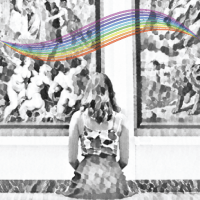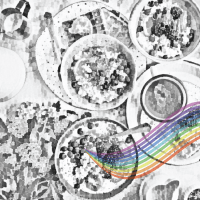To understand the state of today’s youth, let us start with mortality. The World Health Organisation (WHO) compiles a mortality database. Many participating countries provide detailed information relating to deaths that have occurred by the various causes in any given year. Looking at data collated over a seventeen-year period (2000 to 2016), which was compiled from 105 countries each year:
- The average suicide rate amongst young individuals globally aged 10 to 24 years was 3%, for
- youths aged from 10 to 14, the suicide rate was 1.6%, an average of 1,500 deaths each year
- adolescents aged from 15 to 19, the suicide rate was 3.2%, an average of 8,099 deaths each year
- young adults aged 20 to 24, the suicide rate was 3.3%, an average of 13,050 deaths each year
- Suicide rates amongst the age group 10-24 years old has increased each year by an average of 0.2%. Comparing the year 2016 against 2000; the rate has increased by 2.6%, which is now 5% in 2016
- 55.3% of suicides amongst the young occurred in the Americas, followed by Asia at 21% and Europe at 20.8%
- Young men accounted for a massive 75% of all suicides worldwide. The percentage of young men was higher in Europe at 80% and in the Americas at 76.1%

Let us now look at the well-being and health of the youth. According to research carried out by the United Nations in 2005, it is estimated that 100 million people were homeless worldwide, with as many as 1.6 billion lacking suitable housing. Specifically relating to the LGBTQ+ community, research carried out by the Institute of Global Homelessness estimates that anything between 20-40% of the homeless youth are from the LGBT community in the United States alone.
- The reasons for youth homelessness are typically due to:
- being rejected by their families, with 46% of homeless youths running away after rejection and 43% evicted from their family home due to their sexuality or gender expression
- discrimination by private landlords and evictions from public housing due to their sexual orientation
- In a survey spanning 115 countries of the 3,340 young gay men interviewed, 24% had no stable housing
- LGBT youths compared to heterosexual adolescents are more likely to:
- have a major depressive episode
- suffer from a posttraumatic stress disorder
- have suicidal tendencies
- become dependent on illegal substances such as cocaine, crack, or methamphetamines (Keuroghlian, Shtasel and Bassuk 2014)
The statistics show an upward trend, which continues to grow each year. Unless there is a change, the situation will worsen over time.
News and feeds report on stories of unemployment levels, crippling debt, and pandemics are being filtered down daily to children. Very few of these stories are provided with solutions, supporting information or with the benefit of hindsight or experience applied. It is compounded when their family and parents are stressed, worrying about money and the future. Phrasing such as unprecedented does not help. The term makes it sound like something has never happened before. In reality, it is being used to justify governments’ actions; however, the word will likely cause concern for today’s youth. It is easy to see why today’s youth might lose hope, being scared of what is happening around them and believing that these things have never happened before.
They are missing those supporting words of encouragement, such as do not worry, everything will be okay. People in their 30s or older will know these things have happened before, especially at some point in history. By understanding that it has happened before, you also know that the world will eventually recover. For example, in terms of recessions, there is no better example than the great depression of the 1930s, which lasted for three and a half years. Many people lost their jobs, millions were unemployed, and many struggled to feed their families. Fast forward to the next decade, and the United States entered a period of significant growth. The Spanish flu of 1918 lasted one year and killed over 50 million people worldwide. Though a vaccine for the flu was discovered twenty years later, the pandemic was halted through social distancing, imposed quarantined and the wearing of masks in public places.
For someone born in the earlier 2000s, all they have seen are global market crashes, catastrophes, wars, refugees, and now a pandemic during their formative years. They do not have a reference point, a point in time when they can remember when things were good, when life was not so volatile, like for many born in the 1960s, 70s and 80s. The point is no matter how bad things get, we will come out of the other side, and life will get better.
These vulnerable youths need options and choices, and according to research carried out by the homeless charity Centrepoint, many more may stay in abusive home environments due to a lack of options: –
- 37% of all individuals under the age of 18 remained in an abusive home with a parent or guardian because they had nowhere else to stay
- 45% of young people who identified as LGBT+ reported staying in an abusive home with a parent or guardian because they had nowhere else to stay
- 40% said that homelessness had a negative impact on their ability to access or sustain education
With so many young individuals feeling trapped and in abusive situations, is there an opportunity to do something different? Not adopting a one-size-fits-all solution, by finding a balance of providing the fundamental needs of the vulnerable children such as food, shelter, clothing and education, but at the same time giving them the freedom to be themselves and removing the stigmatism of feeling different or not part of a conventional family. It is essential for us all not to see it as a challenge, too big to change or that it is somebody else’s problem. Even small changes can have a significant impact on people’s daily lives.
Though these behaviours directly impact today’s youth, global media outlets are helping to show a world of possibilities and people who embrace and celebrate difference. However, stories still exist today of young people running away from home to escape abuse or persecution from their families. The reality is that the rejection and isolation faced by so many is sadly not something new. When speaking to older community members, significant numbers have experienced some form of prejudice, rejection, and even some having their families disowning them.
Many have survived years of abuse carried out by those closest to them, and though it has affected them, they have not let it define their lives. You will often hear one phrase: I chose the family I wanted to be part of and love. Although they share the same blood, may have given birth to you and may share the same heritage, family is more than just shared genetics or legalities. Families should also be about love and support. Should you feel you are being denied that in any way, create the family you want from the people that are important to you in your life.
If you or someone you know needs help or to talk to somebody, please click here to contact one of the many charities and support groups in your area. Please be safe and reach out
To the youth, you are the future, and one day soon, you will be the people in charge. You will be the leaders and influences who can make all the positive changes needed in the world. You will have the power to help stop what happened to you from happening to someone else. Every time something terrible happens, you will get through it and be much stronger because of it. Whatever you are facing in life will eventually come to an end. Never be afraid to reach out to someone or ask someone for help. Many genuinely caring people want to help you, good people who care about you and only want you to be safe and happy. If you are sad or lonely, please speak to someone, anyone. If you feel you have decisions to make, sleep on them and talk to someone, whether a friend or specialist service. If you seek help, you will discover the amazing people around you, many of whom have experienced situations similar to yours.
Every person is unique; we all have something special to offer, and you and your life truly matter. Finally, never lose hope and stay safe.
SUPPORT GROUPS
More from Gayther
Discover all of the exciting and entertaining articles written by people from the worldwide LGBTQIA+ community, sharing their stories, opinions and experiences in their own style and from their unique perspectives










